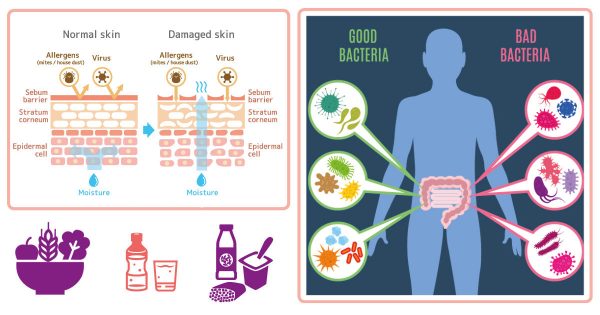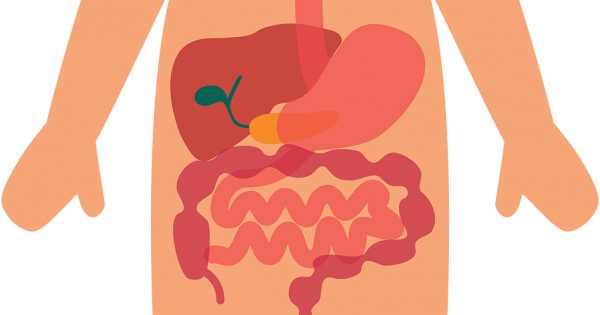One of the most joyful experiences in life is when we welcome our baby into this world. At birth, your baby is dependent on you for almost every single aspect of their survival – they cannot walk nor can they talk, however, your baby is able to fully enjoy the nutritional benefits breast milk provides. Why is this so? Compared with other body systems, a baby’s digestive system is mature enough at the time of birth to digest breast milk.
Gut Development
In general, a foetus develops from three different layers of cells to form three main components.
| Layer | What does it form? |
| 1 | Nervous system, sensory organs |
| 2 | Muscular, circulatory and skeletal systems |
| 3 | Digestive system |
A baby’s intestines start to develop during the 5th week of pregnancy while his digestive system starts to work when he is in the 3rd month of foetal development.
It is best to give only breast milk until your baby is 6 months old; after this, solid foods containing protein, fat, starch, vitamins and minerals can be introduced, as his digestive system is now mature enough to digest more complex foods. Do continue to breastfeed your child while he gradually gets used to eating solid food.
Within Your Baby’s Gut
Bacteria actually play an important role in helping babies achieve a healthy gut. When you start to breastfeed your baby, you introduce several beneficial bacteria such as Bifidobacteria, which are crucial for your baby’s gut health. Over the first few days, both good and bad bacteria increase rapidly to establish a healthy balanced gut microflora. These microflora are important as they help protect your baby against infections and help his immune system to mature. Babies that don’t have the right balance of gut bacteria are more prone to colic and are believed to be at a greater risk of developing allergies and asthma when they grow up.
Breastfed vs. Bottle-fed
Breastfeeding helps your baby achieve optimal growth, development and health. Breast milk is rich in antibodies and studies have shown that breastfed babies have significantly fewer gastrointestinal, ear, urinary and respiratory infections. Breast milk will also encourage the colonisation of good bacteria in a newborn’s gastrointestinal tract.
Bottle-fed babies on the other hand, tend to have far less bifidobacteria in the gut – bacteria that contribute towards the development of healthy gut microflora. Moreover, bifidogenic factors that are found in breast milk help to boost the growth of beneficial bacteria in the gut, which lessens the risk of diarrhoea and other general intestinal illnesses.
The World Health Organisation (WHO) recommends that mothers exclusively breastfeed their babies for at least the first 6 months. However, if possible, both UNICEF and WHO encourage mothers to breastfeed up to two years of age.
Care for Your Child’s Digestive Health
A healthy digestive system is important to ensure that your child gets all the nutrients he needs to grow properly and stay healthy. Food has to be broken down and absorbed properly, as an undernourished child may suffer from improper nutrient breakdown, absorption, and metabolism. If any part of the process goes wrong, your child’s nutritional status is at stake, and when this happens, it may affect his physical as well as cognitive development.
So, if you want your child to grow and stay healthy for many years to come, start taking good care of his little tummy now.







Comments